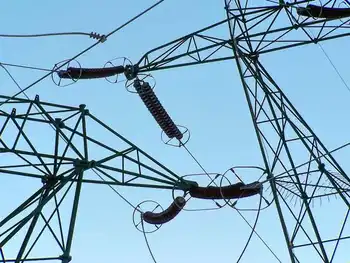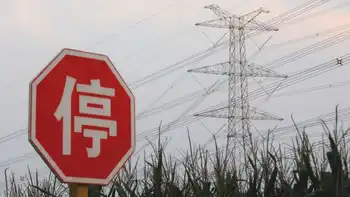Recession cuts industrial power usage
By Chattanooga Times Free Press
NFPA 70e Training - Arc Flash
Our customized live online or in‑person group training can be delivered to your staff at your location.

- Live Online
- 6 hours Instructor-led
- Group Training Available
But the recession has a silver lining for the TVA. The federal utility is paying only about half as much for fuel oil, natural gas and purchased electricity as it did a year ago.
But the decline still hurts.
“This is the biggest cutback in consumption I’ve seen in 30 years,” said John Van Mol, executive director of the Tennessee Valley Industrial Committee, which represents 34 of TVA’s biggest industrial customers. “Chemical, steel and aluminum production is way down across the valley, and it’s a very grim situation for many energy-intensive industries.”
In Chattanooga, EPB President Harold DePriest said industrial power usage is down this year by the biggest amount since 1980.
“We’re hoping that Volkswagen and its suppliers will help boost industrial power sales next year, but right now it’s as bad as anything I’ve seen in a long, long time,” he said.
Alcoa idled all of its aluminum smelters in East Tennessee and Abitibi Bowater, a major paper manufacturer, shut down two paper machines last December before filing for bankruptcy.
Similar cutbacks among Georgia manufacturers cut industrial power sales by the Southern Co. another 16.9 percent in the first quarter after declines last fall.
Natural gas and fuel oil prices doubled from 2006 to 2008 and forced three rate increases by TVA last year that hurt many industrial power users, utility officials report.
But after a record run-up in fuel prices in the past two years, the cost of fuel oil is down 52 percent, natural gas prices are down 47 percent and purchased power is off up to 41 percent in fiscal 2009 compared with a year ago, according to a new TVA financial report.
The slowing economy has reduced demand and the price of such fuels, TVA spokesman Gil Francis said.
Recent rains also should help replenish TVAÂ’s reservoirs that supply the utilityÂ’s cheapest power from its hydroelectric dams.
Such declines helped TVA reduce its electricity rates in both January and April. TVA will announce its next quarterly fuel cost adjustment soon.
But along with the fuel savings, TVA also is facing some daunting cost pressures.
TVAÂ’s dependence upon coal is proving to be more expensive even during the economic downturn. Coal prices were up in the first quarter of 2009 by 15 percent over a year ago. As TVAÂ’s long-term coal contracts expire, the utility is having to replace the older, cheaper contracts with todayÂ’s higher-priced coal, Mr. Francis said.
“Coal prices have come down this year but not as quickly as other fuels like natural gas,” he said.
TVA generates more than 60 percent of its power from its coal-fired power plants.
The December 22 spill at a coal ash pond at the Kingston Fossil Plant in Kingston, Tenn., also is projected to cost TVA up to $975 million to clean up. Local lawsuits could push up that price tag higher.
Stricter environmental rules for air emissions from TVA coal plants — including a $1.7 billion order from a federal judge in North Carolina last year to clean up four TVA coal plants — also will push up TVA’s generation costs.
At the same time, TVA has lost more than $2 billion in its pension investments.
All of those expenses could result in another base rate increase in TVA power rates by this fall, officials said.
“Our customers are benefiting from lower fuel and purchased power costs, which resulted in reductions in our fuel cost adjustment in January and April of this year,” TVA Chief Financial Officer Kim Greene said. “But the decrease in power sales, continuing expenses to clean up the Kingston ash spill, and the impact of the market decline on our pension and other investments are among the factors that make this a challenging year financially.”











